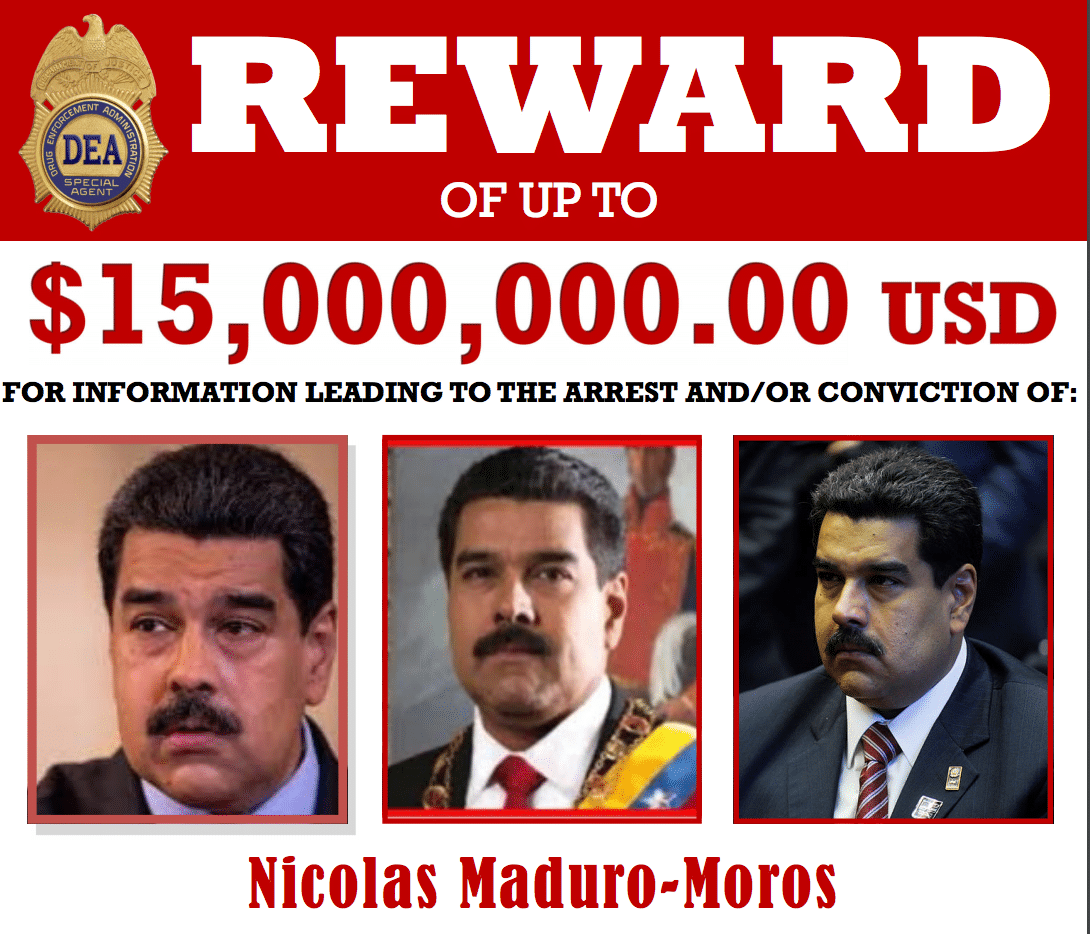As the coronavirus outbreak escalates, the United States has brought drug-war charges against the democratically elected president of Venezuela, Nicolás Maduro, a move that follows the US-led campaign in 2019 to stage a coup in the South American country.
Attorney General William Barr announced narcoterrorism and cocaine trafficking charges against President Maduro and others in his administration on March 26, claiming that “[f]or more than 20 years,” he conspired to export “tons of cocaine to enter and devastate American communities.”
The US government’s own surveillance on the Latin American drug trade demonstrates, though, that Venezuela is a minor player. The vast majority (93 percent) of northbound cocaine never moves through or out of Venezuela; much more is moved through Guatemala and Colombia—six and eight times more, respectively—found a March 2020 report by Washington Office on Latin America (WOLA), citing Drug Enforcement Administration data.
For researchers of Venezuelan politics, the indictment seems to be motivated more by imperialism than drug policing. “Why now?” questioned Dr. Miguel R. Tinker Salas, a historian of Venezuela and professor at Pomona College, in an interview with Filter. For him, the Justice Department is seizing the opportunity of instability wrought by the pandemic to advance the US campaign to install Juan Guaidó—a politician who proclaimed himself president in January 2019, shortly after Maduro’s win in a disputed election. Barr’s own language proves Tinker Salas’ point: in the indictment, Maduro is referred to as the “Former President.”
The coronavirus emergency in Venezuela presents an opportunity for a collaborative response between the government and the opposition. Maduro has already implemented a national quarantine and social distancing policy to slow the spread of the virus. Venezuela has seen 135 confirmed cases as of March 31, according to the Johns Hopkins Coronavirus Resource Center.
Despite Maduro offering to work with Guaidó on an outbreak response, the criminal charges may make that a political impossibility. “The indictment polarizes the conditions between Maduro and Guaidó,” said Tinker Salas. “Whatever deal you are going to strike with the opposition—they’re closed.”
The wedge has already impacted the country’s response to the public health emergency: Just two days after Barr’s announcement, Guaidó took to Twitter to announce that he was forming a coalition between the opposition he leads and some members of the socialist government—Maduro not included.
“To avoid thousands of deaths, we need international financing, which no one will give to Nicolás Maduro, who is unknown to the world and judicially accused on charges of drug trafficking and international terrorism,” tweeted Guaidó.
Venezuela has already been devastated by US sanctions, a war-like policy that has deprived the nation of food and medical supplies. In contrast to Guaidó’s approach, UN Secretary-General António Guterres urged countries sanctioning Venezuela to consider “waiving” them in order “to ensure access to food, essential health supplies, and COVID-19 medical support.”
The Justice Department’s indictment is situated within the drug war’s Cold War history of regime changes. “They are pulling from the same playbook that the George H.W. Bush administration pioneered in Panama, where US indictments against Manuel Noriega led to the 1989 invasion,” wrote Geoff Ramsey, WOLA’s Director for Venezuela.
“To utilize the coronavirus pandemic to squeeze not just Maduro but also the Venezuelan people,” said Tinker Salas, “it’s tragic.”
Image of a DEA wanted poster accompanying the indictment, by the DEA via Department of Justice





Show Comments